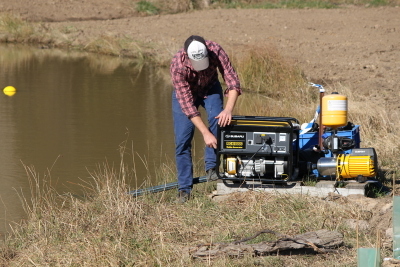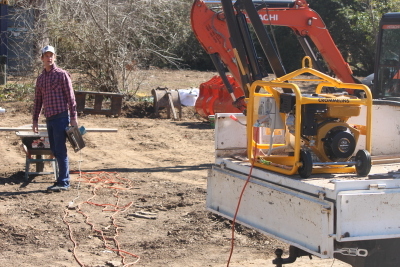Generators are powerful beasts. That's why it's important that you take the right steps to ensure the safe operation of your Generator and avoid any potentially dangerous situations.
The experts at My Generator have put together our top tips for using a generator safely:
1. Always read the instructions
As simple as it sounds, reading the instructions is one of the most important steps to generator safety. Every Generator model is different, so it doesn't matter if you have owned a generator before or if this is your first, it pays to know the dos and don'ts of your particular model. If you have any questions about the instructions, simply call the manufacturer/supplier technical support hotline. Just for good measure, we'll say it again: always read the instructions.
2. Go outdoors
Petrol and Diesel-Powered Generators produce deadly carbon monoxide fumes, so it is critical you always run Portable Generators outside the property. Never in a garage, shed or campervan. Also be sure to keep generators away from open windows, including your neighbours', so exhaust does not enter the home.
3. Be fuel safe
There are some crucial things to remember when fueling your generator.
- Use only the type of fuel recommended in the generator instructions or on its label. (But you know this already, because you followed tip 1!)
- Always turn the generator off and let it cool before refueling, as fuel spilled on hot engine parts could ignite.
- Store your generator fuel in an approved safety container outside of living areas.
- Take care to clean up any spillages. If you spill fuel, or do not seal its container properly, invisible vapors can travel along the ground and be ignited by an appliance's pilot light or arcs from electric switches in the appliance.
4. Do NOT overload your generator
Depending on the generator, there is a limit to how many items it can safely power. First, determine the amount of power you will need - appliance and equipment labels indicate power requirements. For more information you might want to refer to the My Generator Power Calculator. If you're unsure, ask an electrician or speak to the staff at My Generator. Total the power loads, and then make sure your generator produces more power than this sum. If your generator does not produce enough power to operate everything at once, simply stagger the use of your equipment. But do not overload the generator, as this may blow a fuse and/or damage the generator or worse still, damage the connected equipment.
5. Plug in properly
It's important to connect items to the generator properly. Plug appliances directly into the generator, or use a heavy-duty extension cord rated for outdoor use and suitable for at least equal to the sum of the connected appliances.
6. Don't power your house
Never, never, never try to power your house by plugging the generator into a wall outlet. This can lead to electrocution of you, your neighbours and power utilities staff, as it can send electricity through the switchboard and into power lines. Beyond standard portable generators, there are specialised auto-start generators which can be wired into your house mains by an electrician. These are popular for those wanting to power there whole home during a blackout, rather than just a few appliances, but require an accredited electrician to install and wire.
We also recommend you watch this short video on generator safety:
For more helpful information visit our site www.mygenerator.com.au or check out our Learning Resource Centre for helpful guides/articles on all things generator...
DISCLAIMER* Please note, this advice is general in nature and we strongly recommend consulting the product manual and where relevant, a professional installer.











